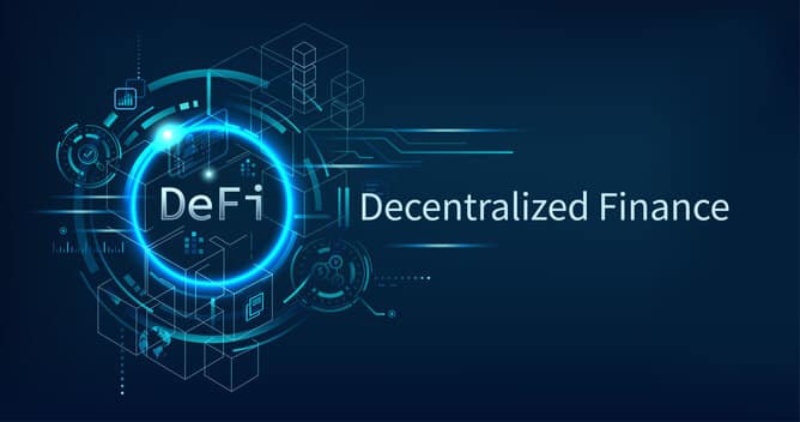
Decentralized Finance (DeFi) presents a decentralized and transparent substitute for conventional banking and financial services, making it a disruptive force in the financial sector. This thorough guide will take you through all the necessary steps to successfully launch your own DeFi company if you’re thinking about getting into the fascinating and fast-paced world of DeFi.
An organization that uses blockchain technology to deliver financial services and products without the use of conventional middlemen like banks or financial institutions is known as a DeFi (Decentralized Finance) company. By using decentralized protocols and smart contracts, DeFi companies hope to establish an open and permissionless financial ecosystem that will enable users to access a variety of financial services.
Companies engaged in DeFi (Decentralized Finance) make money via a variety of methods built into their decentralized protocols. DeFi platforms, in contrast to conventional financial institutions, function on blockchain networks and use smart contracts to automate and carry out financial services. Here are a few ways DeFi companies can generate revenue:
Trading Fees:
Mechanism: Trading fees are levied by DeFi decentralized exchanges (DEXs) on transactions that take place on their networks.
How It Works: To execute trades on the decentralized exchange, users must pay a small fee. The fees are split between liquidity providers, token holders, and the platform itself. They also go toward the liquidity pools.
Interest Income
Mechanism: Interest income is earned by the DeFi lending and borrowing platforms.
How It Works: Lenders receive interest on the assets they contribute to the lending pool, and borrowers pay interest on the assets they borrow. As revenue, the platform keeps a portion of the interest that is earned.
Liquidity Provision:
Mechanism: Revenue is generated by DeFi platforms that make use of liquidity pools.
How It Works: Users who add assets to liquidity pools receive a share of the trading fees the pool makes. A small fee may also be assessed by the platform for these transactions that provide liquidity.
Governance Tokens:
Mechanism: Tokens for governance are issued by some DeFi platforms.
How It Works: Users who possess governance tokens are entitled to take part in the platform’s decision-making procedures. Users may occasionally be required to lock or stake these tokens to support the overall ecosystem.
Flash Loans:
Mechanism: Fees may be collected by DeFi platforms that provide flash loans.
How It Works: As long as the loan is repaid in a single transaction block, flash loans let borrowers borrow money without requiring collateral. Fees may be assessed by platforms for successfully executing flash loans.
Derivatives Trading:
Mechanism: DeFi platforms that enable trading in derivatives have the potential to make money.
How It Works: Fees are charged to users who trade derivatives. The platform may impose a fixed fee or a percentage of the trading volume.
Token Sales and Initial DEX Offerings (IDOs):
Mechanism: DeFi platforms that hold IDOs or token sales have the potential to make money.
How It Works: To host their token sales, projects launching tokens may have to pay fees to the DeFi platform. There may be fees for users who take part in these sales.
Subscription and Premium Services:
Mechanism: A few DeFi platforms provide services that are subscription- or premium-based.
How It Works: To access the platform’s advanced trading tools, analytics, and premium features, users must pay a subscription fee.
Staking Fees:
Mechanism: Fees may be assessed by platforms that provide staking services.
How It Works: When users stake their tokens, the platform may take a cut of the rewards they receive, or they may charge a fee.
Cross-Chain Swaps and Interoperability:
Mechanism: DeFi platforms that make cross-chain swaps possible have the potential to make money.
How It Works: When transferring assets between various blockchain networks, users must pay fees. Platforms that offer cross-chain interoperability may charge a fee.
Oracle Services:
Mechanism: DeFi platforms can make money by offering Oracle services.
How It Works: Users who rely on Oracle services to retrieve external data may be required to pay a fee to obtain dependable and accurate data.
It’s important to remember that different projects may use different DeFi revenue models, and some platforms may use a combination of these strategies. Furthermore, governance tokens are frequently used by DeFi platforms to distribute decision-making authority and encourage user involvement, which promotes the ecosystem’s overall development and sustainability. Engaging in DeFi activities entails risks that users need to be aware of, including volatility in the market and vulnerabilities in smart contracts.
DeFi companies are constantly developing, bringing in fresh ideas, and broadening the application of decentralized finance. Those who are interested in using DeFi should be cautious, do their homework, and understand the risks that come with working in such a quickly developing field.
A combination of technical know-how, business acumen, and in-depth knowledge of the decentralized finance industry is needed to start a DeFi company. You can set up your DeFi project for success in this ground-breaking and revolutionary industry by adhering to these crucial guidelines and keeping an eye on market developments. Accept the decentralization philosophy, encourage creativity, and aid in the financial industry’s transformation with your DeFi project.
Liverpool, UK—House of Spells and Comic Con Liverpool are once again collaborating to bring the… Read More
Introduction In India's booming EdTech space, there's one name that's making waves among Telugu students… Read More
In litigation, often, the difference between winning and losing comes down to strategy. Although facts… Read More
Instagram creators now have a new tool to try if they're searching for a free… Read More
A free tool to help you boost local SEO and attract more clients is your… Read More
In today’s fast-paced digital world, online shopping has become more than just a convenience, it's… Read More